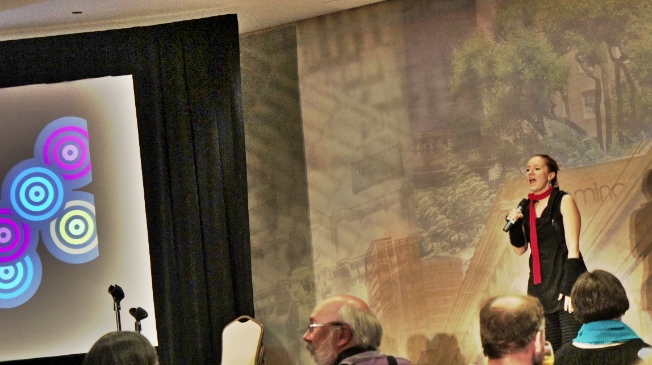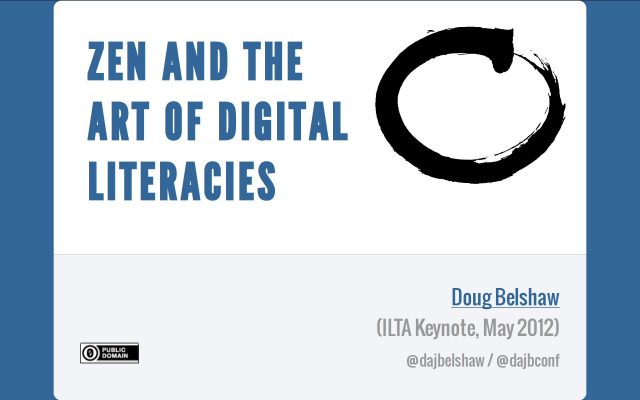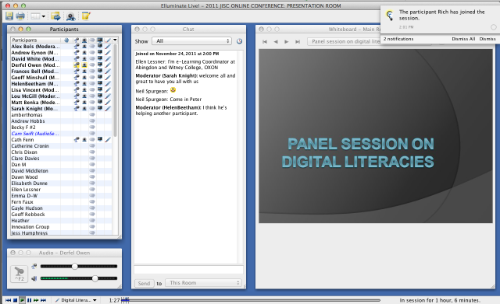
I’ve spent the last week in that weird and wonderful place that is San Francisco. Weird because, well, the number of homeless and obviously mentally ill is quite staggering. Wonderful due to the weather, friendliness of the people, and the obvious unstinting commitment to liberal democracy.
My reason for being there was the Digital Media and Learning Conference 2012 (#DML2012), something I was invited to attend as a writer for the DMLcentral blog. Whilst I was there I also helped judge the DML Competition around Open Badges, which was a privilege and a pleasure. More about that another time, perhaps.
I wrote a day-by-day overview of my experiences at #DML2012 over at my conference blog:
However, I wanted to take 500 words or so here to go through my highlights. I’m all about convenient hypocrisies when their useful so, for the sake of this post, I’m using a ‘Top 5’ construct. Here’s my top five takeaways from #DML2012.
1. Meeting people
The whole point of conferences is to meet other people and talk about important stuff. I was delighted to meet people I’ve interacted with online for years for the first time face-to-face, such as Bud Hunt, and people who have come onto my radar over the last year or so like Audrey Watters, Rafi Santo, Jeff Brazil, and Richard Scullin. The Mozilla crowd (Mark Surman, Erin Knight, Matt Thompson, Jess Klein) were there, of course, as was Cathy Davidson.
I managed to snag an enjoyable conversation with Howard Rheingold, but didn’t dare approach danah boyd or Henry Jenkins. Thankfully I got to hang out with Richard Mills, a PhD student who is being funded as part of the DML Badges research strand, as well as Jamie and JP from BuzzMath, which more than made up for it. 🙂
2. Launch of the DML Connected Learning initiative
DML launched their Connected Learning initiative at the conference along with Spigot (a news aggregator). I could attempt to explain these in detail, but it’s probably easier if you just head over the respective sites to take a look and get involved!
3. John Seely Brown’s keynote
I thought it started slowly, but by the end, John Seely Brown’s opening keynote had me captivated and buzzing with ideas. You can watch Cultivating the Entrepreneurial Learner in the 21st Century below:
4. Connie Yowell’s eloquence
As I currently work for an organisation that is part of a larger one that funds projects (JISC), I’m always interested in the rationale behind how money is distributed. Connie Yowell from the MacArthur Foundation, a philanthropic charitable organisation gave a wonderful, lucid, coherent and incisive display on the panel during Day 2. Her reasoning was so fantastic it put the other panellists in the shade, I thought.
More on that panel in my Day 2 write-up.
5. Ignite presentations
Having put my name forward for an Ignite talk at #DML2012 I was surprised and delighted when first of all it was accepted, and then second, I was to present to the entire conference. Wow. There must have been close to 1,000 people in the room when I gave the following talk:
My fellow Ignite-rs (20 slides, 15 seconds, auto-advanced) were just delightful. A highly recommended format!
Conclusion
As you can probably tell, I had a ball at #DML2012 and can’t wait for #DML2013 in Chicago. I’m going to get there by hook or by crook! I’d like to thank DML very much for making it possible to be there, and HASTAC for inviting me to be on the judging panel for the DML Badges competition (which is another blog post in itself!)



